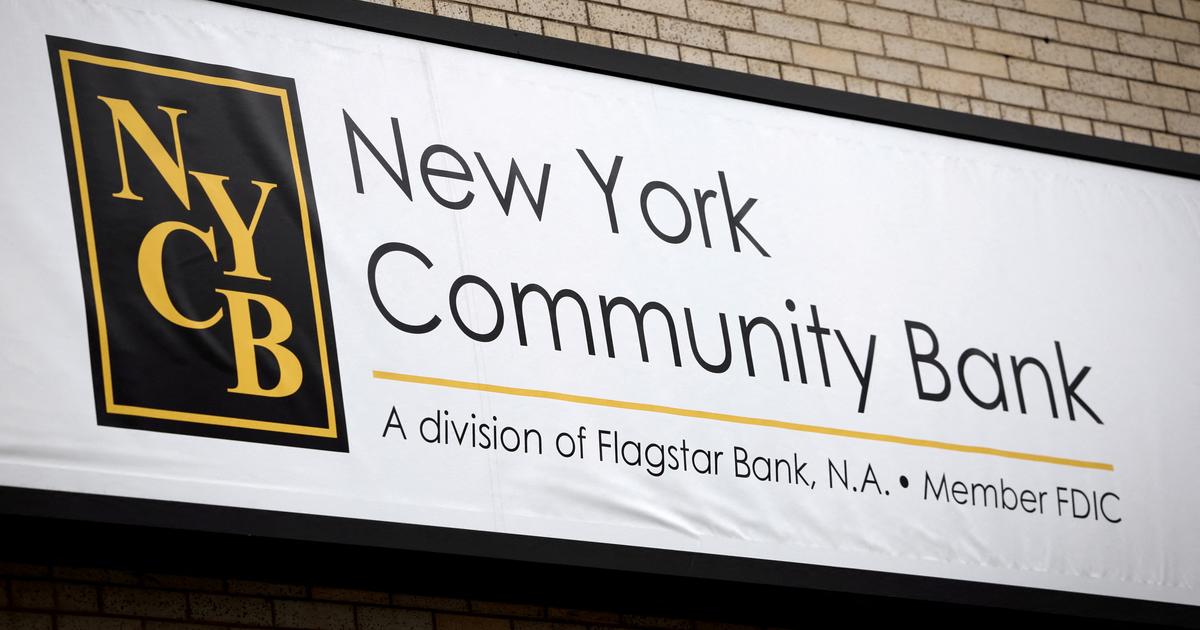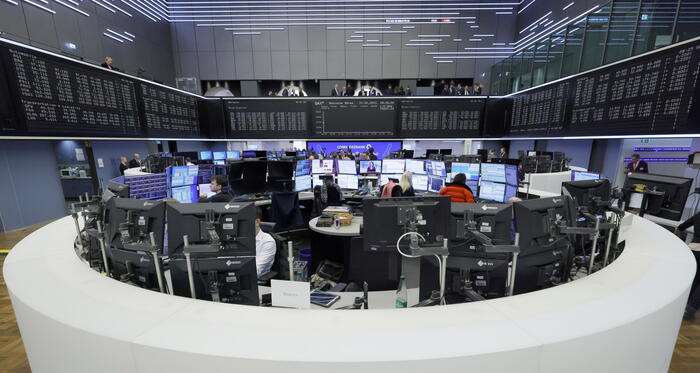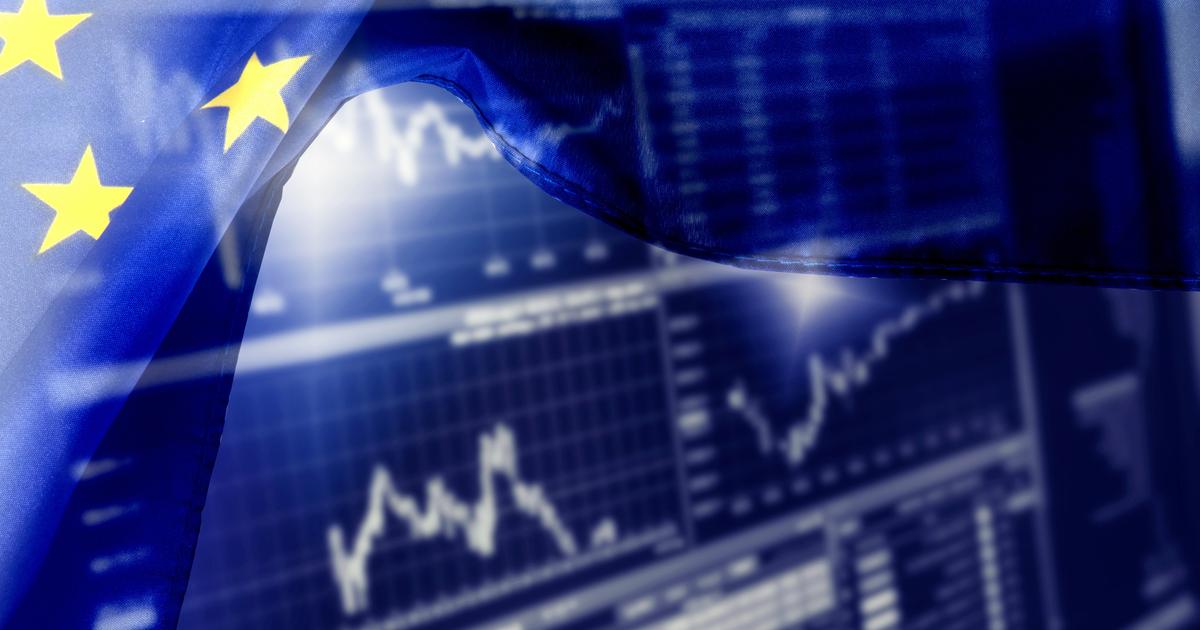European banking does not recover its calm.
With the Credit Suisse crisis closed with its forced takeover by UBS, the focus is now on Deutsche Bank, another entity that has been showing signs of vulnerability for years.
Insurance against defaults (CDS) of the largest German bank have skyrocketed this Friday, and immediately the losses have spread like wildfire throughout the sector without exception.
With the Credit Suisse bailout operation still very present, and the US regional banking crisis that has taken two banks down yet to close, investor sentiment is on the surface.
This was reflected this Friday in the evolution of the Stoxx Europe 600 index, which groups the main European banks, more than 5% down.
Deutsche Bank (-14%), Commerzbank (-10%) Société Générale and UBS (-7%),
They are among the most penalized.
If you look at the Spanish, Sabadell drops 7%, Santander and BBVA 5%, and CaixaBank 4%.
The monetary and government authorities have been insisting for days on the strength of the European financial system, but the message does not sink in.
The fear that the turbulence has not disappeared and that a new earthquake with an epicenter in Frankfurt is beginning to gain ground as a new concern.
It escapes no one that Deutsche Bank —as was the case with Credit Suisse— has been depleted by more than five years of scandals.
The entity was fined in 2015 with 2,500 million dollars for participating in the manipulation of the Libor index (reference rate of the London interbank market) together with other banks;
in 2018, it was investigated by Brussels for being part of a cartel in the secondary sovereign bond market and in 2019 for a cartel in the foreign exchange market.
Confidence issues return to the banks just as European leaders are holding a summit intended to send a calming message to financial markets.
But in an unusual decision for which explanations have not yet been disclosed, the president of the European Commission, Ursula von der Leyen, and the president of the European Council, Charles Michel, have decided not to speak at a press conference at the end of the meeting.
At the entrance to the European Council meeting, there were statements by the president of the Eurogroup, the Irishman Paschal Donohoe.
In them he insisted to the leaders of the EU in that they advance in the Banking Union, and to the European Commission that presents the legislative proposals to adjust the procedures of resolution of banking crises.
reports Manuel V. Gomez.
Meanwhile, the capitalization of Deutsche Bank continues to fall.
Now it is around 16,500 million euros, and so far this year it has lost a quarter of its value on the stock market.
This Friday it announced its intention to repay 1,500 million dollars (1,379 million euros) in subordinated debt early.
Once Credit Suisse was rescued, the German bank was the great candidate to be in the limelight if uncertainty returned to the market.
And so it has happened.
There are similarities between the two: they are financial symbols of their respective countries, although run down, they have been in the crosshairs of regulators for their bad practices, they turned to investors from the Persian Gulf to capitalize, and their shares have been bleeding for years after having peaked in 2007, before the Great Recession.
The size of Deutsche Bank, however, is greater than that of Credit Suisse, and therefore its potential impact on the financial system is greater: at the end of 2022 it had 1.3 trillion euros in assets, more than double the 570,000 million from the Swiss bank on those dates.
Those figures place it as the eighth largest European bank - Credit Suisse was the seventeenth.
The speed at which banks have collapsed in recent weeks accentuates the feeling of insecurity.
But the question is: does Deutsche Bank fall because of its own weakness or because of a ruthless attack from the markets, where investors can make money by going short?
For Antonio Carrascosa, former general director of the FROB, it is more the latter.
“That the CDS rise a lot denotes that there are speculative movements around Deutsche Bank.
And why them?
They have an image of a certain weakness and a less clear business model, but at Credit Suisse there were problems with outflows of deposits and customers, which indicated a problem in the operation of the bank.
In the case of Deutsche Bank it does not come to this.
It is better than two or three years ago.
The markets are looking for a victim to make money with and have found Deutsche Bank,
For the Arcano economist Leopoldo Torralba, there is a certain irrationality that affects the banks whose reputation has been most affected in recent times.
“Investors want to avoid being exposed to banks that have shown poor management in the past.
With the Credit Suisse case closed, Deutsche Bank was next on the list of improvable past management, with several restructurings and reduced profitability.
Faced with the uncertainty of how the current situation will affect the income statements and bank balance sheets, investors take care of themselves and avoid those that are less qualitatively reliable, because quantitatively the general solvency and liquidity ratios are reasonable.
Uncertainty always breeds volatility, but we don't see overall banking systemic risk,
Stopping this sequence that is fed back by falls in the stock market, negative news and a new loss of investor confidence is now the challenge of the bank, which seeks to prevent the wheel from continuing to spin in a destructive spiral.
All the indicators this Friday included the fear that a new chapter of the banking crisis would open: the euro lost almost 1% against the dollar as the possibility grew that the European Central Bank would be forced to slow down rate hikes.
The main stock market indices suffer significant red numbers: the Spanish Ibex 35 falls almost 3%, practically the same as the Eurostoxx 50. The parquets of Paris, Berlin and London fall more than 2%.
And the barrel of Brent oil, a reference in Europe, loses more than 4% to 72 dollars due to the possibility that the economy suffers due to the banking problems and credit flows less strongly, which increases the risk of a recession.
Follow all the information on
Economy
and
Business
on
and
, or in our
weekly newsletter









